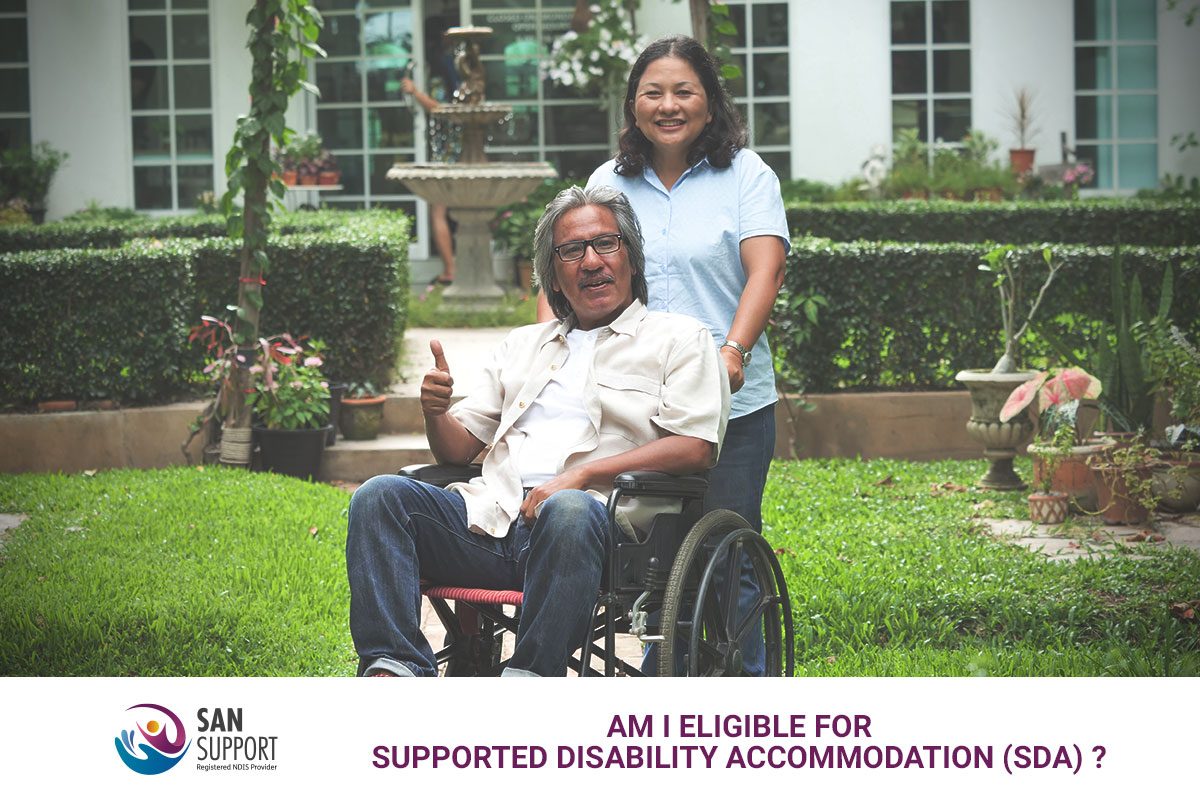
Specialist Disability Accommodation (SDA) is an essential part of the National Disability Insurance Scheme (NDIS). It provides customised housing solutions for individuals with extreme functional impairments or high support needs. If you are exploring whether you qualify for SDA funding, this guide will walk you through the eligibility criteria, the application process and how to secure the right support.
What is Specialist Disability Accommodation (SDA)?
SDA offers purpose-built homes designed to meet the unique needs of people with significant disabilities. These homes are not just ordinary residences. They are equipped with innovative features that provide safety, accessibility and independence.
SDA housing might include:
- Wheelchair Accessibility: Wide doorways, ramps and accessible bathrooms.
- Assistive Technology: Smart home systems to enhance independence.
- On-Site Support Options: Spaces for live-in carers or frequent visits from support workers.
- Behaviour-Specific Features: Robust designs that minimise risks for individuals with complex behaviours.
Importantly, SDA funding does not cover personal support services like carers—it focuses exclusively on the housing component.
Who Qualifies for SDA?
To be eligible for SDA, you need to demonstrate a high level of need. The NDIS evaluates eligibility based on two key factors: extreme functional impairment and very high support needs.
Extreme Functional Impairment
You may fall under this category if you face serious challenges in performing daily activities independently. Examples include:
- Mobility Limitations: Difficulty navigating standard homes, even with assistive devices.
- Personal Care Dependence: Requiring substantial help with tasks like bathing, dressing and eating.
- Cognitive Challenges: Struggling with decision-making, communication, or managing household responsibilities.
Very High Support Needs
This category applies if you need consistent, specialised care to manage your daily life. You might qualify if:
- You Require 24/7 Support: Carers must be available around the clock to assist with emergencies or routine needs.
- You Have Complex Behaviours: These behaviours might put yourself or others at risk, making specialised housing essential.
- You Need Medical Monitoring: Conditions requiring constant medical attention, like ventilator support, fall under this category.
How to Determine Your SDA Eligibility
If you think SDA might be right for you, follow these steps to confirm your eligibility and begin the application process.
Reflect on Your Needs
Start by identifying the challenges you face in your current living situation. Are you struggling with mobility, personal care, or safety? Understanding your limitations helps clarify why SDA might be essential for you.
Consult Allied Health Professionals
Next, schedule an assessment with occupational therapists, physiotherapists, or other specialists. They will evaluate your functional abilities and recommend solutions tailored to your needs. These reports are critical evidence for your NDIS application.
Develop a Housing Plan
Your Housing Plan is a crucial part of your SDA application. This document should detail:
- Your current living arrangement and its limitations.
- Specific barriers to daily living caused by your impairment.
- The type of housing that would meet your needs, such as fully accessible homes or robust housing for behaviour management.
Submit Evidence to the NDIS
Once your Housing Plan is ready, submit it along with supporting documents, such as:
- Functional capacity assessments.
- Reports from health professionals.
- A behavioural support plan, if applicable.
Await NDIS Approval
After reviewing your application, the NDIS will decide if you qualify for SDA. If approved, the funding will be added to your NDIS plan under the “Capital Supports” budget.
Types of SDA Homes You Can Access
Depending on your needs and eligibility, you may qualify for different types of SDA housing. These include:
- Basic SDA: Homes with simple modifications for accessibility.
- Improved Liveability: Accommodation designed for sensory or cognitive impairments.
- Robust Housing: Durable homes for individuals with behaviours of concern.
- Fully Accessible Housing: Specialised designs for wheelchair users.
- High Physical Support: Advanced features like hoists, emergency alarms and adjustable furnishings.
What Else to Consider When Applying
If you are thinking about applying for SDA funding, keep these points in mind:
- Your Current Living Situation: The NDIS will assess whether your current home is unsuitable and why SDA is necessary.
- Funding Scope: SDA funding only covers the specialised housing component. You will still need to budget for rent and living expenses.
- Combined Supports: SDA works well when paired with other supports, like Supported Independent Living (SIL), to provide comprehensive care.
Why Apply for SDA?
Living in SDA can transform your life. It provides not just a roof over your head, but a safe, accessible environment where you can live with dignity and independence. Whether you need fully accessible features, behavioural support, or round-the-clock care, SDA ensures your needs are met.
Take the First Step Today
If you have extreme functional impairments or very high support needs, SDA could be the key to improving your quality of life. By understanding the eligibility criteria and working with professionals like SAN Support, you can navigate the process with confidence and clarity. Let us help you find the housing solution that empowers you to live your best life. Together, we can make independence and safety a reality!
